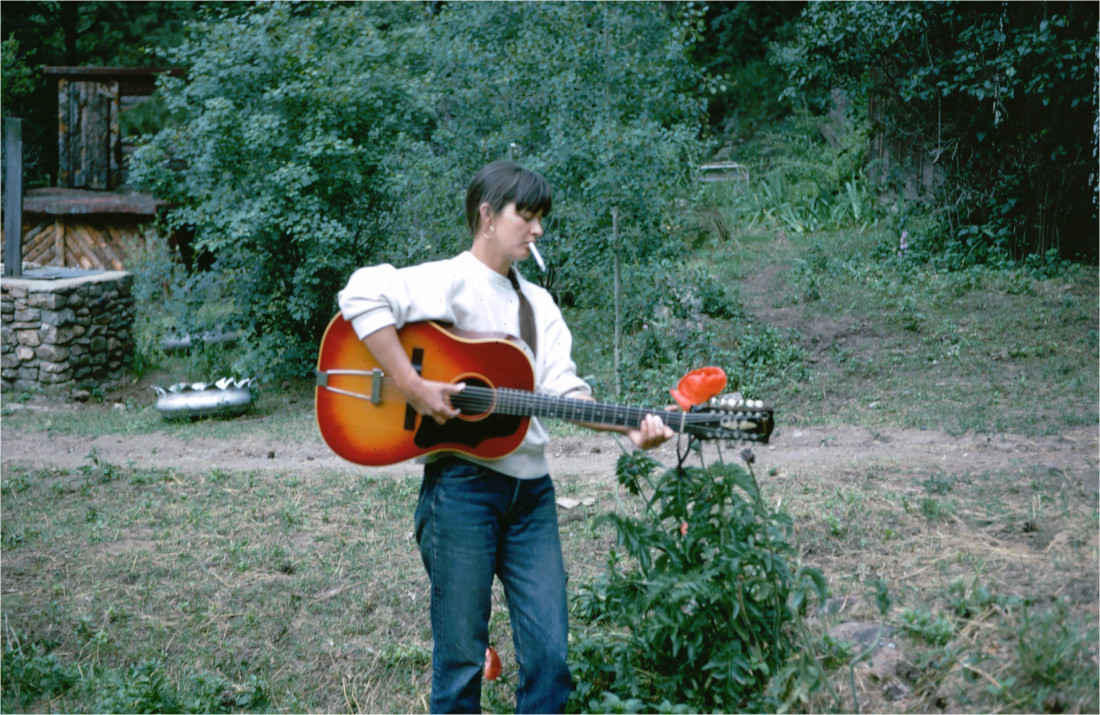Critipeg: Karen Dalton: In My Own Time
★★★ out of 5
Streaming on Cinematheque at Home until March 13
The life of folk singer Karen Dalton is a woeful and tragic tale. If you’re looking for an upbeat story, this is not it.
Nick Cave, interviewed for the documentary, is one of Dalton’s biggest fans. Her work had a profound effect on the musician. “Her music puts a demand on you, like it or not. You’re forced to enter her world. It’s a despairing world. It’s a dark world,” he says.
After leaving home at age 15, Dalton promptly married the first of a string of spouses. Dalton is the name of her second husband, with whom she had a daughter.
She rejected the notion of traditional marriage early on, embracing the budding feminist movement, gravitating to artists and ultimately allowing her authentic self to emerge. “I’m working on my own direction and destiny, not my mother’s,” Dalton wrote in her journal.
Intent on following her soul’s deep yearning to make a career in music, she left two small children behind and headed for New York. She rarely spoke of her son, but eventually guilt made her return for her four-year-old daughter, Abbe Baird.
“Part of her was a sweet, nurturing, loving person. The other side was an entirely different person altogether. She didn’t like that dark side,” Baird says.
A sensitive soul, Dalton felt deeply. An authentic artist, “she lived her songs,” conveying that heartfelt emotion to listeners. It was characteristic of her not to look at her audience. Instead, her eyes were cast downward, and her focus was inward.
The documentary is interspersed with clips of a radio interview with Bob Fass, who is heard telling Dalton that he cannot classify her gloomy, blues genre. “I’m going to start a new category for heart singers,” he says.
Dalton transforms her voice into a plaintive instrument. The sound is eerily similar to Billie Holiday’s voice. Holiday’s songs, including the controversial anti-lynching number “Strange Fruit” were part of Dalton’s repertory.
The folk singer had a preference for older obscure traditional songs with no documented author.
She rejected the promotional aspect of the music business and moved with her third husband, Richard Tucker, to Colorado. “She was frustrated with the mechanism of getting known,” Tucker says.
Though her album In My Own Time has endured the test of time as a cult album, it did not initially sell well.
By the mid 1960s, the music scene changed from folk to rock. Santana enrolled Dalton to headline their act. The two genres couldn’t have been more disparate. It was the beginning of the end of her musical career.
Contributing to her career’s downward spiral was the increased use of hard drugs to cope with depression. Dalton died alone in her home at 59 in 1993.
A new generation has discovered her music, including her granddaughter Becky Baird. “I’d tell my friends, you should check out my grandma. She’s this really cool blues singer.” Turns out, they were already listening to her music.
Dalton spent her career keeping distant from starmakers. This is the first I’ve heard of the folk singer who was part of the Greenwich Village scene in the early ’60s. This documentary attempts to ensure her talent and music are not forgotten.
I see love that is not felt. I see truth that is not spoken. Someday it all shall return. Right now, I just can’t bear it.” (Karen Dalton journal entry)
Published in Volume 76, Number 17 of The Uniter (February 10, 2022)







